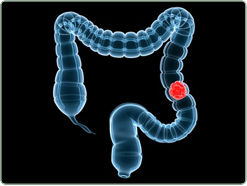Colorectal Cancer Prevention Beverly Hills

Colorectal cancer is the second leading cause of cancer death in the United States. At the same time, colon cancer is one of the most preventable cancers. Without screening, 1 in 20 men and women will develop colon cancer during their lifetime. Regular screening significantly decreases your risk of colon cancer and rectal cancer.
Colorectal cancer often develops from pre-cancerous polyps in the colon that overtime become malignant or cancerous. Colonoscopy is considered to be the best screening method for polyps and colon cancer.
During colorectal cancer screening Dr. Mehdizadeh can detect and remove polyps that could turn into cancer. Another advantage of a screening colonoscopy is early detection. Colon cancer is highly curable when caught early. Sadly, only 8% of those diagnosed with late-stage colon cancer live beyond 5 years.
About 140,000 men and women are diagnosed with cancer of the colon and rectum each year. An estimated 50,000 men and women die of this disease every year. Majority of these lives can be saved with proper screening and early treatment.
Men and women ages 50 and over should have regular screening colonoscopy. The American Cancer society recently recommended lowering the age of screening colonoscopy to 45 as the result of an increase in rates of colon cancer and rectal cancer in younger individuals. Those with a family history of colon cancer may need screening at a younger age.
Encourage you loved ones to schedule their cancer prevention appointment. Dr. Mehdizadeh is a member of the Colorectal Cancer Center of excellence and Digestive Diseases Center of Excellence at Cedars-Sinai Medical Center. His performance is continuously measured for the best outcomes and lowest complication rates.
